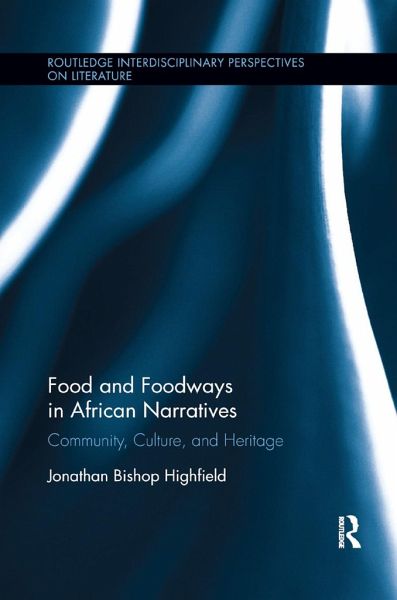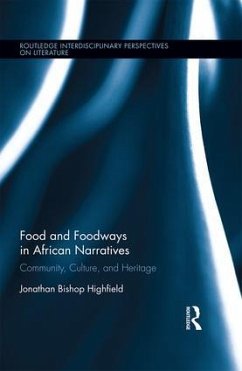
Food and Foodways in African Narratives
Community, Culture, and Heritage
Versandkostenfrei!
Versandfertig in 1-2 Wochen
55,99 €
inkl. MwSt.
Weitere Ausgaben:

PAYBACK Punkte
28 °P sammeln!
The African continent is home to thousands of cultures, but nearly every one has experienced alteration of its foodways because of slavery, transcontinental trade, and colonization. Food and Foodways in African Narratives: Community, Culture, and Heritage takes a careful look at these alterationsas seen through African narrati














